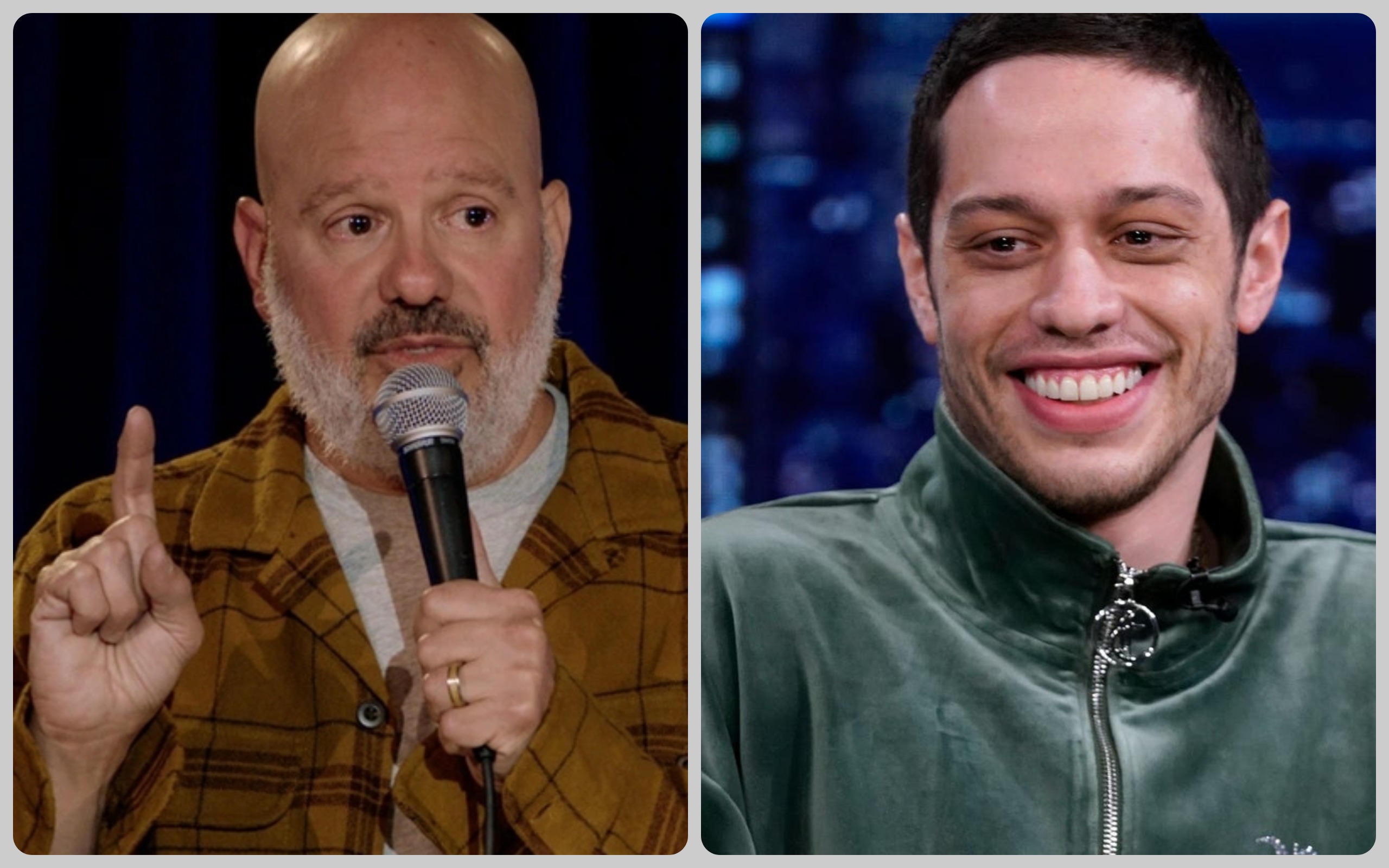The lights are on, the mics are hot, and the smell of fresh oil money—or, as some call it, blood money—is thick in the air. We’re talking, of course, about the star-studded, ethically dubious extravaganza known as the Riyadh Comedy Festival, and the nuclear-level meltdown it has triggered amongst the comedy elite. Forget “cancel culture” for a moment, because what we have here is the biggest stand-up tragedy of the year: the great, principled comedians of our time cashing in their supposed moral authority for what appears to be a seriously oversized duffel bag full of Saudi Riyals.
My thoughts on the Riyadh Comedy Festival. https://t.co/yRSj3GjwDt pic.twitter.com/6OFZ0hcQsU
— david cross✍ (@davidcrosss) September 29, 2025
And thank the gods of snark for David Cross. The man who gave us Tobias Fünke’s questionable life choices is now channeling his inner, righteous moralizer—but with a distinctly cynical, Page Six-style edge—to call out his former heroes. His recent online manifesto isn’t just a little finger-wagging; it’s a full-on, ironic, investigatory evisceration of comedy’s big dogs, including Dave Chappelle, Louis C.K., Bill Burr, and Pete Davidson.

The Hypocrisy Is the Punchline
Cross’s central thesis is painfully simple and hits like a perfectly timed joke: You can’t spend a decade railing against “cancel culture,” corporate censorship, and the crushing of free speech, only to turn around and do a tightly-censored set for a regime known for, shall we say, a rather strict view on human rights, including the execution of journalists and activists.
All of your bitching about ‘cancel culture’ and ‘freedom of speech’ and all that s–t? Done. You don’t get to talk about it ever again,” Cross wrote, cutting through the self-serving rhetoric like a bone saw (too soon?).
This isn’t some open-mic rookie beef; this is the comedy world’s equivalent of an all-star cage match, pitting the idealists (Cross, Marc Maron, Atsuko Okatsuka, Shane Gillis) against the mercenary mega-stars who have decided that “artistic integrity” has a very specific, eight-figure price tag.
https://www.youtube.com/watch?v=ZMRv11879n8
The Price of a Soul: What Does $1.6 Million Buy?
The numbers being tossed around for this Saudi government-backed event are simply staggering, which, naturally, is the whole point. Tim Dillon, another comedian who was initially slated to perform before being hilariously, and ironically, fired for joking about the country’s alleged use of forced labor, claimed some headliners were offered up to million. That’s not a gig; that’s an early retirement plan for a small country.
Cross is disgusted, but he’s also sarcastically curious about the economics of ethical surrender. He wonders what exactly this “totalitarian fiefdom” check is buying: “what, a fourth house? A boat? More sneakers?”
It forces the rest of us, sitting here in the cheap seats of American pop culture, to ask: Is this the point where we realize the “rebel comic” persona was just another lucrative brand? That the very people who built empires on “telling the truth” will gladly sell a heavily pre-vetted, carefully edited version of that truth to the highest bidder?
Atsuko Okatsuka provided a hilariously grim peek behind the curtain by sharing the censorship rules from her rejected offer. The contract reportedly barred material that would “degrade, defame or bring into public disrepute, contempt, scandal, embarrassment, or ridicule” the Kingdom, the Royal Family, or religion. It’s a literal ‘No Joke Zone’ for anything that matters, and yet, the very comedians who weep about the limits of their freedom at an American university are signing on the dotted line for a government that jails people for a tweet. The irony is so rich, it could be a Saudi sovereign wealth fund.
Bill Burr’s “They’re Just Like Us” Defense
The defense offered by those performing is almost as outrageous as the decision to go. Bill Burr, a comic long lauded for his everyman skepticism, offered up a defense so profoundly tone-deaf it should be studied in a “How Not to Apologize” course.
Burr essentially played the wide-eyed tourist, detailing his experience by saying the crowd was great and that the overall event was one of the “top three experiences” he’s ever had. His attempt to normalize the experience by suggesting “They’re Just Like Us” is the cherry on top of this moral sundae.
Of course the people in the audience are “just like us,” Bill. They are people who enjoy a night out and a good laugh. But the controversy isn’t about the people—it’s about the regime that’s hosting, funding, and censoring the entire spectacle, using international celebrities to launder a reputation soiled by human rights abuses and the assassination of journalist Jamal Khashoggi. Burr’s deflection is a classic celebrity move: focus on the nice, cheering crowd and pretend the hand that signed your check isn’t stained with anything heavier than oil.
The ‘Clown-Washing’ Effect
Human Rights Watch and fellow critics have been loud about the fact that this festival, and other celebrity-luring events, are a textbook example of “art-washing” or, in this case, “clown-washing.” This isn’t just about entertainment; it’s part of Crown Prince Mohammed bin Salman Al Saud’s (MBS) “Vision 2030” plan to modernize the economy and, crucially, repackage the country’s image on the global stage.
Leah Remini, the actress and activist, also weighed in, urging Westerners not to “launder” the regime’s image. It’s a powerful word: laundering. The celebrities are, in essence, being paid a fortune to give a shiny, liberal-friendly polish to a brutal reality. They are providing the distraction—the high-wattage, A-list noise—so the world focuses on the laughs and not the political prisoners.
Cross’s blistering comparison to doing commercials for “Lockheed Martin or Zyklon B” is designed to shock, but it hits at the core of the issue: the money being earned is directly tied to the state apparatus that suppresses dissent. You don’t get to preach about social justice in America and then take a government check from a country with “SLAVES for f–k’s sake,” as Cross put it.
A Pattern of Ethical Check-Cashing
This Saudi comedy festival is just the latest, most blatant example of a celebrity cash-grab that prioritizes personal wealth over public principle. The comedy world’s ethical implosion mirrors similar “sportswashing” efforts, where massive contracts lure golf stars and soccer legends to play for state-owned leagues. The script is always the same: a powerful, oppressive regime throws unimaginable money at American icons to secure a fleeting moment of Western-facing normalcy, and the icons, despite their carefully curated image of rebellion, take the money and run.
Back in 2014, Mariah Carey performed for the Angolan president José Eduardo dos Santos, whose regime was widely criticized for corruption and human rights abuses. Jennifer Lopez also caught heat for performing a private concert for the dictator of Turkmenistan. And let’s not forget various American rappers and pop stars who have taken massive, secret paydays to perform for oligarchs and dictators in the former Soviet bloc, only for their agents to claim blissful ignorance later. The pattern is clear: once the money gets big enough, the principle shrinks to nothing.
For the comedians who went, the price of freedom of speech was apparently a first-class ticket to Riyadh and a sack of cash big enough to buy a small island. Cross, Maron, Okatsuka, and Gillis may not have the biggest bank accounts this week, but they might be the only ones left with a punchline that still has a hint of real integrity left in it. The rest have proven that their “rebel” brand is as manufactured as a reality TV plotline. And for that, we’re deeply disappointed, but not at all surprised. The biggest joke in comedy right now is the price of a comedian’s soul.


